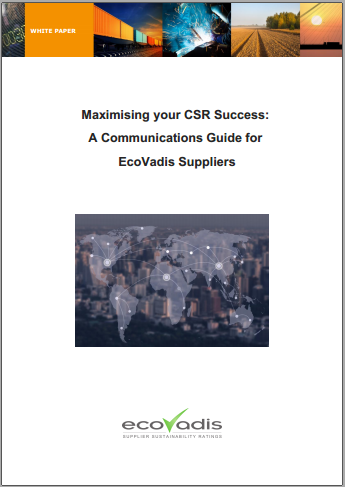
The growth of Corporate Social Responsibility (CSR) is not just a trend for intrinsically motivated companies, or those for which it is assumed that their large size drives its necessity. The business implications for embedding sustainability into core business practices have become ever more clear for companies across industries, countries, and even sizes. Typical arguments for driving sustainability initiatives include: avoiding reputational risk, reducing total cost, and increasing revenue through innovations.
Trends that are putting CSR in the spotlight
According to Deloitte, the following 5 sustainability trends have been actively shaping our businesses today:
1: Compliance adding value: Companies are adopting intelligent risk management systems to achieve strategic advantages in their industries.
2: Companies are increasingly integrating sustainability into core business values; By integrating sustainability into their bottom line, companies can practice sustainable management throughout their value chain.
3: Consumers are demanding deeper insights and greater involvement: Today’s consumers are well informed, which requires companies to maintain transparency.
4: Green = Bottom Line: As the competition for resources is increasing,more companies are turning to recycling of products in order to reduce costs and drive growth.
5: Sustainability as a business driver; in the past, sustainability initiatives tended to be random and sporadic, many companies are now organizing and driving their practices so they can be used strategically to create value
But just how relevant is this for Small-Medium Enterprises (SMEs) in comparison to larger companies?
Many of the core business case drivers for large multinational corporations may seem not so relevant for SMEs: In addition to being exposed to significant scrutiny by Non-Governmental Organisations (NGOs), international watchdog organizations, most large companies are listed and thus subject to regulations from (e.g. from the SEC), and are routinely as well as activism from shareholders, unions, industry associations or other public interest groups (think of the VW emissions scandal just last year). A company with a broad global audience certainly has a lot to lose, but at the same time, they also have a lot to gain. Larger companies that implement innovative and successful CSR initiatives have a broader scale of impact possible.
On the other hand, SMEs do reap many benefits of CSR – despite or even due to their size. SMEs have an easier time to build trust and a genuine rapport with internal and external stakeholders: they can develop personal relationships with their employees and customers leading to longer tenure or be more directly involved in their community and environmental impacts. More attention may be given to the actions taken and measured outcomes, rather than the reputational marketing schemes and potential green-washing traps that large companies often face.
SMEs are realising the necessity to play their part and may do so better by taking advantage of their size. Additionally, recent trends have further encouraged their involvement, such as:
- The importance employees place on their company’s values
- The rise of B-corporations
- EU Mandatory Reporting Directive
- Increase of reporting tools available for SMEs specifically
Read our blog on how companies can adapt to the EU Directive on Non-Financial Reporting
SMEs are increasingly engaging in and reporting on CSR & Sustainability – Why this trend?
While reputational risks from consumers may not seem as present compared to larger companies, SMEs are facing pressures from large corporations, as they play a vital role in the supply chain. As large corporations are feeling the pressure to become green, this trickles down to their suppliers as well. Buyer requests become drivers towards the implementation of initiatives, and companies who have sustainability embedded as a part of their strategic directive see this as a differentiator in the market. The phenomenon is two fold: while large companies continue to encourage CSR throughout the supply chain.
So, are you part of this trend and ready to take the advantages of CSR initiatives one step further?
Take a look at EcoVadis’ guide on how to communicate on your CSR success!
Continue Reading:
Leveraging EcoVadis Assessment Results to Support GRI Reporting
Are You Ready For Supply Chain Sustainability Reporting requirements?
How Can Companies Adapt To The EU Directive On Non-Financial Reporting?























